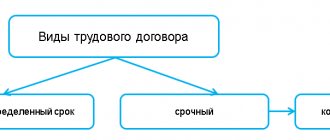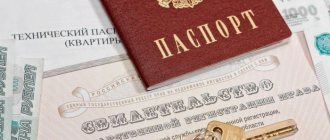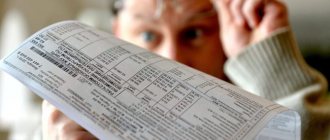Housing and communal services receive gigantic amounts of money each year. According to statistics, in 2021 the total debt of Russians to utility service providers is approximately 573 billion rubles.
From 01/01/2021, the accrual of penalties for debts will be restored. The ban on calculating penalties imposed due to the pandemic was in effect from 04/06/2020. How are utility debts collected?
In accordance with Part 1 of Art. 153 of the Housing Code of the Russian Federation, consumers of utility services are required to pay for the previous month by the 10th day of each month. If there is no payment, the payment will become overdue on the 11th.
The homeowners association has the right to choose a different date for paying utility bills with the consent of the owners (by a majority vote, when more than 50% agree with the change in date).
A large debt has accumulated for utilities - where to start?
The first thing to do is find out the real amount of debt. The easiest and fastest way is to call the URC (Unified Settlement Center) or the management company/homeowners association and use your personal account number to clarify the amount of debt. If you are a confident Internet user, you can check the information on the website of the State Services, management company or HOA through your Personal Account. In addition, during reception hours, a citizen has the right to personally contact the utility service to receive face-to-face consultation.
Even if you received information about the debt remotely, you will still have to visit the office of the management company or HOA. The organization’s employees will help you correctly arrange the installment payment and indicate the deadline within which you need to deposit the funds. Even in the worst cases it is possible to reach an agreement. There are a number of measures to support citizens who find themselves in difficult financial situations - subsidies, benefits, utility holidays.
Legislation
The Housing Code of the Russian Federation defines utility payments as mandatory for owners and tenants of premises. Article 153 of the Housing Code of the Russian Federation requires citizens and organizations to pay fees for residential premises and utilities in a timely manner and in full.
List of mandatory payments
The list of items that are included in the housing fee structure is specified in Article 154 of the Housing Code of the Russian Federation.
It includes:
- payment for the maintenance of premises and management services of an apartment building;
- payment for current and major repairs of common property, cleaning of the local area;
- payment for utility resources (individual and general household consumption is taken into account): cold and hot water, electricity, heat, gas, solid fuel (if the heating is stove), sewerage and garbage removal.
In addition, at a general meeting of home owners, by a collective decision (upon reaching a certain majority of votes), this list can be expanded. At the request of residents, it includes security services, concierge or snow removal in winter. Even if the owner was not at such a meeting or does not agree with its outcome, he will have to submit to the opinion of the majority.
How to find out the amount of debt
Methods for clarifying debt can be divided into 2 groups:
- Remote (using means of communication);
- In-person (personal visit to the organization).
During the pandemic, since 2020, remote interaction has become a priority. Utility organizations have suspended in-person consultations. Under the current conditions, citizens who found themselves in “home mode” could find out the amount of debt only through online services or telephone calls.
Online resources that provide information about debts for housing and communal services include:
- State Services Portal;
- Website of the URC (Unified Settlement Center);
- Website of the management company or HOA.
To find out the data, you need to log in or register through your Personal Account. Next, find the section with the corresponding service and request information about your personal account balance. Since the State Services website is an all-Russian portal, the sequence of actions when working with it is the same for all residents of our country. The ERC website, on the contrary, is developed separately for each region, so there is no single algorithm for obtaining the necessary data. The same applies to online services of management companies and homeowners associations.
With the development of the mobile Internet, the most progressive management companies and homeowners associations have acquired applications that allow them to monitor the status of their personal account from the screen of their mobile phone. In fact, this is the same Personal Account from the company’s official website, but more adapted for mobile devices.
Another way to find out the debt without a personal visit is a phone call. You can call the numbers of the Unified Settlement Center indicated on the receipts, or the control room of the management company/chairman of the HOA.
When using remote means of obtaining information, no specific data will be required from you. It is enough to know the address or personal account number. When conducting payment transactions, reference to an address is required, since services are assigned to a specific premises, which is identified precisely by the address of its location. The personal account is registered in each receipt and is an individual number of an apartment or non-residential premises, under which all important information is stored - the owner’s full name, address, area and other parameters, payment data and the amount of debt.
For those who prefer personal communication, there is face-to-face reception at utility organizations. On specially designated days and hours, a citizen can physically visit the utility service and obtain the information he needs. In this case, you must take with you an identification document (passport), a certificate of ownership (an alternative option is registration) or a rental/lease agreement confirming the right to use the premises.
Don't be afraid to contact the management company
For many debtors, the fact of having a debt causes emotional discomfort. A feeling of fear and shame appears. Therefore, they try to delay the resolution of the situation until the last minute. There is no need to be afraid. The sooner you contact the management company, the better. People work there too. Depending on the severity of the case and the amount of debt, they will help you find a way out. Most often this is an installment plan for a predetermined period. In exceptional cases, the debtor may be provided with utility holidays or penalties may be written off.
Who does the apartment debt apply to?
The utility service has the right to collect debt from all citizens directly related to this residential premises. Among them:
- The owner and his family members. In accordance with Article 31 of the Housing Code of the Russian Federation, along with the owner, capable members of his family living with him are responsible for timely payment for residential premises and utilities. This is a spouse, children, parents. In exceptional cases, other relatives may also be recognized as family members if they were moved into the residential premises by the owner in that capacity.
- Persons who have the right of shared ownership of this premises. At the same time, personal accounts can also be divided so that you can legally pay only your part of the debt.
- Tenant under a social tenancy agreement and members of his family. By analogy with the owner, all capable family members of the tenant are jointly and severally liable.
- The heir or other relatives of the deceased owner registered with him in this premises.
The law prohibits the collection of debt from a minor, even if he is registered in the debtor’s apartment. Parents or guardians must do this for him, also within the framework of joint and several liability.
Find out why the debt has accumulated
Timely and full payment of housing and communal services is the responsibility of the owners of premises (Article 153 of the Housing Code of the Russian Federation). This obligation arises from the moment of registration of ownership of the premises.
Owners of apartments and non-residential premises do not always take responsibility for paying for housing and communal services. The reasons for non-payment of bills may vary. Some owners accumulate short-term debt due to the fact that they were temporarily absent from the premises and did not receive payment documents. For example, you were on a business trip or were treated in a medical facility.
Other residents do not pay their bills systematically and accumulate huge amounts of debt. Some believe that the management organization is not properly fulfilling its responsibilities, others believe that natural resources belong to all citizens on equal rights.
Depending on which group the debtor belongs to, the management organization can choose a mechanism for debt collection: awareness-raising, claims work, restriction or suspension of the provision of utility services. Let's discuss the basic techniques of each debt collection mechanism.
How to register partial repayment of debt for housing and communal services
What utilities cannot be disconnected for debts in 2021?
For a certain amount of debt, the management company has the right to limit the debtor’s consumption of utility resources, with some exceptions. For example, residents of apartment buildings cannot be left without cold water and heating. This norm is enshrined in paragraph 119 of Government Resolution No. 354 dated May 6, 2011. This is due to the fact that such measures make the premises unsuitable for living (especially in winter). In addition, there is a great risk of causing damage to other home owners living in the same building as the debtor.
Is it possible to turn off electricity for utility debts?
Electricity (along with hot water, gas and sewerage) is included in the list of resources that the management company can turn off. If a consumer has not paid for electricity for more than two months and the amount of his debt exceeds two monthly payments calculated according to the standard, he may be forced to limit his consumption. After receiving the relevant notification, the debtor is given an additional 20-day period to pay the debt.
This procedure is prescribed by law, but in practice, utility services always meet their consumers halfway and are in no hurry to cut off a citizen’s access to energy resources. Even if the debtor has paid at least part of the money, this is already considered a reason not to disconnect him from the resource.
Collection through the bailiff service
Bailiffs can prohibit the debtor from traveling abroad, seize accounts and property, write off money from accounts (no more than 50% of any income), sell property to pay off the debt and use other collection methods as part of enforcement proceedings.
If the bailiffs do not receive anything from the debtor for a long time (more than six months), they will issue a decision to end the enforcement proceedings and return the writ of execution.
However, utility services have the right to contact the bailiffs again after 6 months. And if there is evidence of a change in the financial situation of the debtor, then at any time (Clause 5, Article 46 of Law No. 229-FZ) until the statute of limitations expires - 3 years from the date of entry into force of the judicial act (Article 21 No. 229-FZ).
What to do if you have nothing to pay off your apartment debt
In addition to fundamental defaulters, there is a separate category of people who really do not have the means to pay utility bills. But even then, they don't necessarily face shutdown or trial. To do this you need:
- Collect documents proving your poor financial situation.
- Contact your utility service provider or management company/homeowners association with them.
If you take control of the situation in time and indicate your interest, you can achieve a deferment, installment plan or debt restructuring.
Installment plan and utility holidays
Installment payment is the most popular measure of support for citizens experiencing temporary financial difficulties. Before applying for an installment plan, the debtor is recommended to write an application to the management company or directly to the resource provider to verify the correctness of the debt accrual. Once the total amount is confirmed, you can apply for the opportunity to pay off the debt in installments. In this case, the term and monthly amount are immediately agreed upon, which will then be added to the regular payments for the current month.
If a citizen currently has no money at all, the resource company, in exceptional cases, may grant a deferment on debt repayment - the so-called utility holiday. After this time, the debtor will still have to repay the debt - at once or in installments.
At the legislative level, the conditions for installment plans and utility holidays are not regulated in any way. Everything happens in good faith and by mutual agreement of the parties. In this regard, it is recommended to formalize everything in the form of a written agreement.
Sample debt repayment schedule for utility bills
filling out the payment schedule for utility bills: grafik-pogasheniya-zadolzhennosti-po-kommunalnym-platezham-obrazets.docx
Government subsidies and benefits
Subsidies and benefits are provided for certain categories of low-income families.
The subsidy is paid to citizens whose housing and communal services expenses exceed a certain threshold of total family income. In most regions this figure is 22%. To receive a subsidy, you must submit an application to the MFC. A prerequisite is the absence of debts on utility bills (or the existence of an installment plan). If, during the period of receiving a subsidy, a citizen is overdue for more than two months, the state has the right to suspend payment.
Veterans, military personnel, disabled people and their families, orphans, and pensioners also have special benefits for utility bills. The size of the benefit and the amount are determined by each region independently.
Debt restructuring
Restructuring of housing and communal services debt is an agreement to establish a new procedure for repaying utility bills. In other words, this is an installment plan or deferment. But in no case does restructuring cancel the debt, either completely or partially. The only thing the management company can agree to is to write off penalties.
An important point is that restructuring is carried out only for citizens interested in paying off their debt.
Can rent debts be written off?
Debt write-off is possible if:
- The payer (individual or legal entity) is declared bankrupt. By a court decision, a bankrupt is exempt from paying debts (including utility bills).
- The payer has died. In this case, the apartment is inherited along with the debts. Some of them can be written off if the statute of limitations has passed - three years.
We take into account the statute of limitations and deduct debts older than three years
The statute of limitations for claims to collect debts for utility services is 3 years (Article 199 of the Civil Code of the Russian Federation). Thus, the management company can legally claim the debt only for this period.
If a citizen began to pay money before the court established the limitation period, the entire amount contributed by him will be credited towards the payment of the earliest period of debt and late fees. Therefore, it is not recommended to acknowledge the debt and make any payments until a court decision is made on the expiration of the statute of limitations.
We divide the debt among all registered
There is an option to divide the payment for housing and communal services and the amount of debt itself among all those registered. But this can only be done by mutual agreement of the parties and on the personal responsibility of each, since joint liability by law can only apply to the owners.
Until the age of majority, utility bills for a child must be paid by his parents or guardians. It is illegal to collect debts from a person that arose before he came of age.
Install meters for electricity, water and gas
To reduce the amount of payment for housing and communal services, it is best to install meters in the apartment and pay only for actual consumption. This is especially true in cases where a single person (married couple) lives in the apartment or no one lives.
Outreach
A common way to motivate a resident to pay bills is to charge a penalty. Notify the debtor in writing that you are forced to charge him a penalty for late payment of housing and communal services. Explain that payment for residential premises must be paid no later than the date established in the management agreement or determined by the decision of the general meeting of owners of premises in the apartment building (Part 1 of Article 155 of the Housing Code of the Russian Federation).
If the management agreement or the OSS have not determined the date for payment of payment for housing and communal services, then the last day of the payment period is considered to be the tenth day of the month (Article 190-192 of the Civil Code of the Russian Federation). Payment will be considered overdue from the eleventh day in accordance with paragraph 30 of the resolution of the Plenum of the Supreme Court of the Russian Federation dated June 27, 2017 No. 22.
There are residents who do not understand how the amount on the receipt is calculated, so they do not pay their bills. In this case, the debtor can be called and invited to an appointment with the head of the management organization or the chief accountant. During the conversation, tell the owner that non-payment of bills leads to the accrual of penalties, and failure to transmit meter readings leads to the accrual of amounts in receipts according to the standards.
Another option to resolve the problem peacefully is to enter into a debt repayment agreement with the debtor. This way, the consumer will be able to avoid restrictions and suspension of utility services and repay the debt in a manner convenient for him.
Tell the debtor about the terms under which you propose to enter into an agreement to repay the debt. Specify in the agreement:
- validity,
- consequences for violation of obligations,
- details of the parties.
Offer the consumer to choose how to pay the debt: in a lump sum or in installments. If the owner is ready to repay the debt in one payment, include in the agreement the amount of the debt, the period of its formation and the expected date of payment.
Not the most common way to work with debtors for housing and communal services is to offer the owner to work off the debt. Working off a debt instead of paying housing and communal services is considered a change in the payment method provided for in Art. 409 of the Civil Code of the Russian Federation. The most convenient in this case is considered to be a mutual agreement concluded in writing in accordance with Art. 161 Civil Code of the Russian Federation.
Find out how to calculate penalties
What are the risks of rent debt - possible consequences
A citizen who is late with at least one payment already becomes a debtor. As soon as the amount of late payment exceeds the critical point of two monthly payments calculated according to the standard, the management company has the right to restrict the defaulter from using the service. What measures of influence on the debtor are possible from the management company:
- A warning requesting repayment of a debt. This is the first thing the management company must do. As a rule, it is sent along with the receipt.
- Accrual of penalties. Starts from the 31st day of delay.
- Pre-trial claim (indicating a payment schedule for gradual repayment of debt). Thus, the management company again tries to contact the defaulter and come to an agreement.
- Disabling the service. It is applied if the debtor does not pay at all, even in small parts, and does not make contact at all.
- Going to court. After the court decision comes into force, a writ of execution is formed. Subsequently, it is transferred to the bailiffs, who have the right to seize the debtor’s property, his bank account and monthly write off part of the salary/pension until the debt is repaid.
What can the debtor do to resolve the situation:
- At the initial stage, contact the management company with a request for debt restructuring. Depending on the current situation in a person’s life, the utility service may make concessions and provide installment plans, deferment, or even write off penalties (in whole or in part).
- At the trial stage, reach a settlement agreement, also agreeing on the gradual repayment of the debt and specifying the period within which the obligations will be fulfilled in full.
It is important to come to an agreement as soon as possible, because once the court decision comes into force, this will no longer be possible.
Warning from utility companies and repeated distribution of notifications
The management company sends the first warning about the debt the very next day after the debt arose. If the payment for services is not received on time (by the 10th day of each month), already on the 11th day all defaulters will be sent notices at their actual address indicating the amount of the arrears.
For debtors who have not repaid the debt, a repeat document (with an updated debt amount) is sent a month later. This process cannot continue indefinitely, therefore, after three months from the moment the debt arose, the management company has the right to go to court.
Sample notice of debt on utility bills
Download the form for notification of debt on utility bills: obrazec-uvedomleniya-o-zadolzhennosti-po-kommunalnym-platezham.docx
Accrual of penalties (fine)
The amount of penalties for late utility payments is specified in paragraph 14 of Article 155 of the Housing Code of the Russian Federation. From the 31st day of delay, the management company has the right to withhold 1/300 of the refinancing rate in effect at the time of calculation. From the 91st day the figure increases to 1/130.
An example of calculating penalties for utility debt class=”aligncenter” width=”791″ height=”630″[/img]
Suspension or complete shutdown of utilities
If neither the warning nor the accrual of penalties have any impact, the management company may suspend the provision of the service. However, 20 days before this moment, the debtor must be notified by registered mail or telephone call (with a recording of the conversation) about the upcoming disconnection and the defaulter must be given the opportunity to repay the debt within this period.
The list of services that can be cut off for non-payment includes electricity and gas supply, hot water, and sewerage. It is prohibited to turn off cold water and heat energy in apartment buildings (clause 119 of Government Resolution No. 354 dated May 6, 2011).
Transferring the case to court and judicial collection
When pre-trial settlement turns out to be useless, the management company has no choice but to file a lawsuit to force the collection of the debt. However, there is still a chance for a peaceful resolution of the issue. It can be achieved by concluding a settlement agreement, which is based on the agreement of the defaulter to voluntarily repay the debt within a certain period of time (in a lump sum or in installments).
When is rent arrears taken to court?
There is no clearly defined amount established by law. However, after 2-3 months of delay, the utility service has the right to apply for a court order to force the collection of the debt. If the order was canceled by the debtor, the case is considered through a lawsuit.
A claim in court without going through the stage of a court order is possible only if the amount of debt exceeds 500,000 rubles.
Voluntary order
A voluntary procedure involves resolving a dispute without a trial. Examples include situations where the debtor:
- Having received the claim, he paid off the debt;
- Having accumulated a large amount of debt, I turned to the management company with a request for restructuring and was given the opportunity to pay off the debt in installments (or even slightly deferred the payment of the debt).
Forced collection of housing and communal services debt by bailiffs
Within 1-2 months after the court decision made in favor of the utility service, a writ of execution is sent to the bailiffs. The stage of forced collection begins.
Bailiffs can:
- Seize the debtor's movable and immovable property and partially sell it at auction.
- Seize bank cards and accounts.
- Send a writ of execution to the organization where the debtor works, and deduct a certain amount from the salary every month to pay off the debt (if he is a pensioner, it will be deducted from the pension).
- Ban travel abroad.
An apartment, if it is the only home, cannot be sold at auction. Therefore, in this case, arrest will only mean restriction of the right to dispose of property. In this case, the debtor and his family will remain living in this residential premises and will not be subject to eviction.
What to do if there is a legal debt for utilities?
If the court has confirmed the need to pay the debt, the only thing left to do in this case is to pay it. If the debtor does not have the required amount, he can:
- Attract borrowed funds.
- Independently sell part of the property and use the proceeds to pay off the debt.
- Contact the FSSP, find out which specialist received the corresponding writ of execution for proceedings, and agree with him on partial repayment of the debt. Bailiffs also help if they see that a person is in a difficult financial situation.
All of the above measures should be taken immediately after the start of enforcement proceedings. If the bailiffs manage to seize the apartment, in the future (even after the debt is paid) only the court can remove it.
Is eviction from housing real?
If the apartment is owned by a citizen, it is almost impossible to evict him for debts. The amount of debt must be gigantic and exceed the cost of the housing itself. But even in this case, when minor children live with the debtor or this is the only living space suitable for living, the law prohibits any eviction actions.
If an apartment is provided to a citizen on a social rental basis, and the person does not pay for utilities for six months without good reason, he may be asked to move out. A person will not be left completely without housing, but most likely it will not be as comfortable as the previous one.
Liability for non-payment
If payment for housing and communal services is overdue by more than one month, what threats will arise?
Penalties will be charged on the main payment
Penalties begin to accrue from the second month of delay. The rights of public utilities to their accrual are reflected in paragraph 14 of Article 155 of the Housing Code. The penalty is accrued for each day and its % changes depending on the number of months of non-payment:
- 1/300 of the refinancing rate of the Central Bank of the Russian Federation - starting from 2 months to 3 months
- progressive penalty 1/130 for subsequent ones, starting from 4 months.
Amount of penalty = debt * number of days of delay * 1/300 * refinancing rate. The current rate can be found on the Central Bank website www.cbr.ru. From the beginning of 2021, the rate is 4.25%.
Example: The total amount of debt for services as of March 10, 2021 is 2,400 rubles. Of these, 1200 rubles. for February, and 1200 rubles. for January 2021. You made the payment only on March 20, 2021 (the number of days of delay is 10).
Calculation of penalties: (1200*10 days/300)*4.25%=1.70 rubles.
Disabling the use of utilities
Temporary restriction or disconnection from the use of utilities (gas, electricity, hot water, intercom services) until the debt is repaid. The debtor faces this measure if the rent debt is more than three months.
The procedure for applying the restriction:
- the debtor is notified in person or in writing (by post);
- if the debtor ignores the notification, the contractor personally notifies the consumer after 3 days and disconnects when technically possible.
What utilities cannot be turned off?
- heating;
- cold water supply.
Accordingly, electricity, gas, hot water may be turned off, and sewerage may be closed.
Utility services are resumed no later than 2 days after payment of the debt for services. Or after signing an agreement on debt restructuring (see what to do if the electricity or gas is turned off).
Submitting a debt collection case to court
Utility companies are free to start a lawsuit to collect housing and communal services debt from the moment they are convinced that the user has stopped making payments. To start:
- the debtor is notified of the debt in person or in writing (see how to find out the rent debt);
- offer to pay the debt voluntarily within 30 days or enter into an agreement to repay the debt;
- in case of refusal or non-payment, a package of documents is prepared and sent to the court. From June 1, 2021, the procedure for collecting debt for housing and communal services has been simplified. Now, when submitting documents to the court, a positive decision is made in absentia within 5 days according to a court order.
The cost of the claim may increase significantly, since it will include not only the total amount of the entire debt, penalties for the entire period of delay, but also legal costs.
How does the renewal of a housing and communal services contract occur after payment of the debt?
As soon as a citizen has repaid the debt, he has the right to again become a full consumer of utilities. To do this, he needs to prepare a written application to the management company (or resource supplier) demanding the resumption of the provision of housing and communal services.
If, due to the debt, the defaulter was limited in the consumption of a certain type of services (but the contract with him was not terminated), their renewal is carried out within two days from the moment of full repayment of the debt.
Pre-trial collection methods: claim
Collection of debts for utility services does not imply a mandatory pre-trial procedure in relation to individuals. That is, the management company, homeowners association (TSN, housing cooperative) or the supplier can immediately go to court.
If the debtor is a legal entity, then it is necessary to write a claim.
In any case, we recommend filing a claim. Requirements with calculation of the amount of the debt, penalties and a warning about going to court with the subsequent recovery of additional legal costs from the debtor encourage the debtor to pay at least in parts and gradually pay off the debt.
Are there ways to legally avoid paying utility bills?
Utilities must be paid on time and in full. This is exactly what the Housing Code of the Russian Federation prescribes to citizens. But sometimes there are exception situations when you can skip the next monthly payment:
- The services are of poor quality.
- Repeated notifications are received for services already paid for (there is no need to pay a second time in a month, this is a technical error).
- The receipt contains incorrect details (this often happens when the management company changes). It is necessary to clarify in the Criminal Code which account the payment should be made to.
- The citizen had an overpayment after recalculation.
What amount is considered debt?
To understand the amount of non-payment will be considered a debt for housing and communal services, let’s open clause 118 of the Rules, approved. RF PP dated 05/06/2011 No. 354 (hereinafter referred to as Rules 354).
If you do not pay for a utility service, the debt becomes an amount that meets the following criteria:
- two monthly fees, calculated according to the established standard for utility service consumption;
- regardless of the presence of an individual (common) meter;
- there is no agreement on installment payments on the debt or the terms of the signed installment agreement have been violated.
That is, if a subscriber does not pay rent for an apartment within two months and this amount exceeds two standards, then this amount will already be a debt.
If payment is received, but in parts, it will again become a debt if the balance is higher than the amount of consumption for two months according to the standard. Standards for the consumption of utility services are established by local regulations of the subjects for a specific type of utility service separately.
Joint and several liability for utility debts
Joint and several liability assumes that all adult capable family members of the owner living with him are responsible for timely payment for housing and communal services (Article 31 of the Housing Code of the Russian Federation). All of them, according to Article 249 of the Civil Code of the Russian Federation, must pay part of the fee in accordance with the size of the share they own (or in equal parts if the shares are not allocated).
When collecting debts, all family members also come to the attention of bailiffs, so money can be written off from any of them who has funds at the moment. Therefore, for those owners who live together but have a separate budget, it is also better to divide personal accounts (and debts on them) in order to avoid conflicts and disputes. In this case, you will no longer have to bear responsibility for the payment debts of the co-owner. This can be done through the court. In addition, the owner has the right to contact the management company with a request to conclude a separate agreement and generate a payment document (receipt), according to which he will subsequently make payments.
Splitting a personal account is impossible if:
- The apartment is under arrest;
- The premises are used for official purposes;
- The apartment does not have a sufficient number of isolated rooms for the number of owners.
Forced eviction for utility debts
Can they be evicted from an apartment for a utility debt? Eviction for debt is a separate requirement of the statement of claim by representatives of the utility service. If, after the court decision comes into effect, the debtor continues to accumulate debt, does not comply with the requirements of the restructuring agreement, and the FSSP of the Russian Federation fails to collect anything from him, the time comes for this extreme measure - eviction.
Eviction procedure:
- written notification to the debtor about the possible application of eviction proceedings;
- filing a claim in court for the forced eviction of the debtor;
- After the court's decision, the person will be given 7 days to voluntarily evict, and then a compulsory order will be carried out.
Eviction from a privatized apartment
If a person has other suitable housing, he may be evicted for debt. This implies that the apartment will be seized and then sold at auction. That is, the debtor will be deprived of his property. The owner's right is protected here by Art. 446 Code of Civil Procedure of the Russian Federation. It says that in the absence of other suitable housing, foreclosure on the only housing is prohibited. And a person cannot be evicted to a hostel or social housing. Bailiffs have the right to seize, describe, and then sell at auction any property in the debtor’s apartment, and that which belongs to him personally.
An important point: if the debt is small, then they will not be able to repossess the apartment. Since the debt must be commensurate with the repossessed housing. There must be debts of up to a million rubles. So such cases are rare.
Eviction from a municipal apartment
The possibility of eviction from municipal housing is provided for in Art. 90 LC RF under the following circumstances:
- the debt for housing and communal services is more than six months, and the reason for lack of payment is not valid (loss of job, serious illness requiring treatment costs, loss of a close relative (funeral costs), compensation for material damage according to writs of execution);
- provision of other housing on social rent, meeting the requirements for living space and sanitary standards.
- The responsible tenant (with whom the contract is concluded), as well as members of his family, are subject to eviction.
As a result, the social rent agreement is terminated through the court and the person ends up on the street.
Eviction from the hostel
The rental agreement under which a citizen lives in a hostel is signed for a certain period (for the duration of work, study, service). The owner of the hostel can be an organization or municipality. The rights and obligations of the tenant under such an agreement coincide with the social tenancy agreement. Therefore, the landlord has the right to evict the debtor for debts that have arisen for more than six months (clause 1, part 4, article 83 of the Housing Code of the Russian Federation), without providing other housing. But after the court decision.
Debts for housing and communal services in the event of bankruptcy of an individual - what happens?
An individual (as well as a legal entity) can begin bankruptcy proceedings if he is unable to fulfill all of his debt obligations. A citizen’s right to bankruptcy and the procedure for action are prescribed in Chapter 10 of Federal Law No. 127-FZ of October 26, 2002. Most often it is used by those who have no property other than their only home. As soon as the court declares a person bankrupt, all debts that arose before the bankruptcy procedure began are written off from him, if his property is not enough to cover them (this also applies to utility debts). A significant drawback lies in the fact that for the procedure you need to pay a certain (rather large) amount of money.
On September 1, 2021, amendments to Chapter 10 of Federal Law dated October 26, 2002 No. 127-FZ came into force. Now the possibility of extrajudicial (simplified) bankruptcy on a free basis is being introduced for individuals. Thus, citizens will be able to write off debts in the amount of 50,000 to 500,000 rubles.
However, even a bankruptcy procedure will not save a citizen from paying current utility bills.
Going to court
Rent debts can be “adjudicated” in the magistrate’s court by filing an application for a writ of injunction in the magistrate’s court. This is the fastest way. Within 5 days you will receive a court order (if you pick it up in person).
If within 10 days from the date of receipt of the letter with the court order, the debtor does not go to court to cancel it, then you will already have a writ of execution in your hands to present to the banks and the FSSP.
If the order is cancelled, you will need to file the claim again: in the magistrate’s court, if the debt with interest (penalties) is up to 100,000 rubles; to the city (district) court, if the amount is greater.
We draw up a claim according to the general rules of Art. 131 Code of Civil Procedure. The state duty can be calculated using an online calculator.
At any stage of debt collection, you can enter into a settlement agreement with the debtor (agree on a convenient payment procedure). For example, if you filed a lawsuit, and the debtor got a job and wants to pay.
Government subsidy
Subsidies are possible for all categories of citizens. However, a prerequisite is that the monthly payment for utilities is more than 22% of the total family budget.
In practice, this option as a subsidy is suitable for single pensioners and low-income families.
A special feature of the subsidy is the need to pay utility bills in full. And the established amount is returned to the recipient’s account at the end of the month.
The amount of the subsidy is calculated for each family individually. Depending on the total family income, on the region of circulation. The subsidy amount can be from 5 to 30% of the total payment amount.
A prerequisite at the time of applying for a subsidy is the absence of utility debt. Therefore, if there is any amount of debt, the authorized body will refuse to assign a support measure.
The body authorized to assign subsidies for housing and communal services is the district social protection department. To apply, you must have permanent registration in the region of application. In addition, only the owner of the premises can receive assistance.
What to do if you have accumulated utility debts?
First of all, do not panic and do not reject the manager’s call from the housing office.
Even when the amount of debt exceeds 60 thousand rubles, calculate all finances, determine how much you can pay now and go to the management company. Talk to a company representative and explain your situation. A housing and communal services employee will go to the meeting and tell you how to proceed. If you start paying off your debts gradually, no one will sue you. Do not argue or conflict, as this will not lead to anything good.
How to check housing and communal services debt when buying an apartment
Due to the provisions of the current legislation, debts for utility bills do not pass from the old owner to the new one. However, there is one exception and it concerns major repairs (Article 158 of the Housing Code of the Russian Federation), the debt for this service passes to the new owner. The buyer of an apartment will pay for other utilities only from the date of its purchase (registration of the transaction in Rosreestr).
Unfortunately, there are currently no available methods by which a potential buyer can easily obtain information about the existence of debt. Utility and resource companies are required to comply with current legislation on the protection of personal data, which expressly prohibits the disclosure of any information to persons other than the owners, except in cases of granting a power of attorney.
There are two ways to get information about whether the seller of the apartment is in debt or not:
- Before concluding a transaction, ask the seller to provide certificates of absence of debt on utility bills.
- Before concluding a transaction, ask for receipts for payment for the last month.
Utility bills must be paid.
The presence of utility debts can lead to consequences, such as disconnection from a utility resource, litigation, and even seizure and debiting of funds from bank accounts. Useful article? Rate and share with friends!
How to pay off debts
There are several ways in which you can pay off debts:
- Use of statute of limitations. In this case, the court may completely waive the debt.
- Debt restructuring. In this case, the debt will have to be paid, but not immediately, but in parts.
When is write-off possible?
The general statute of limitations for the collection of utility bills is three years. That is, utility companies can only collect debts for an apartment for the last three years.
It is important to know that the debtor himself or his representative must declare this. The court does not have the right, on its own initiative, to use this right or offer this method to the debtor as a way to legally avoid paying for housing and communal services.
Restructuring
Another way to pay off rent debts. The debtor can independently contact the utility company with a request to provide an installment plan to pay off debts. The concluded agreement will provide him with the opportunity to pay off his debts gradually over an agreed period, but will not relieve him of the obligation to pay current utility bills.
If there is such an agreement, the resource supply company no longer has the right to restrict the provision of a utility resource or sue. The exception is cases where the debtor does not comply with the terms of the agreement.








